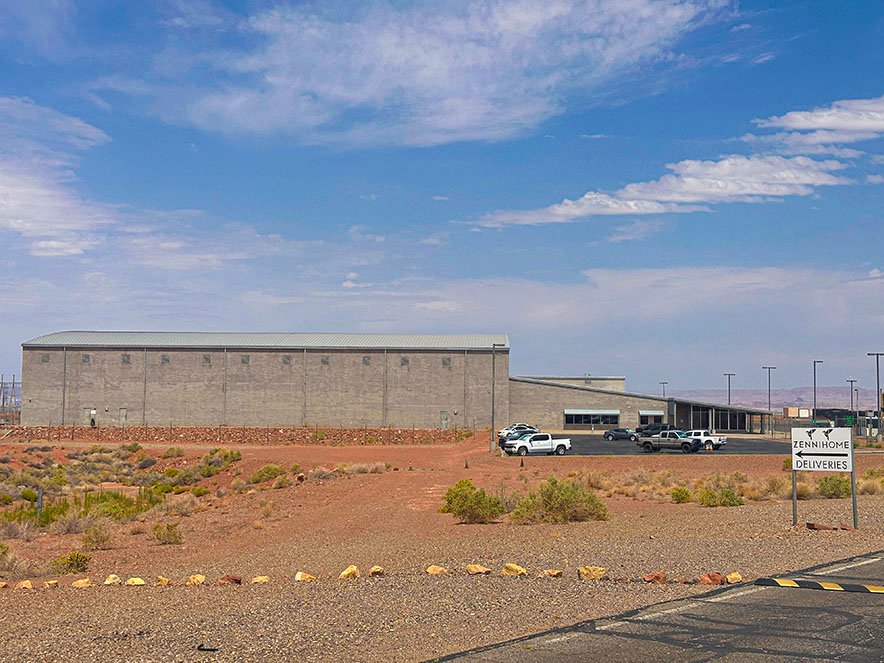Development efforts on the east bank of Nashville’s Cumberland River have stirred various reactions among state lawmakers. Recently, Metro Nashville’s Chief Development Officer, amidst scrutiny from state officials, defended a collaboration with Boston’s Fallon on this large-scale project.
Bob Mendes, a former city council member and part of Mayor Freddie O’Connell’s team, expressed that the mayor views the master plan with Fallon as “unprecedented” in favorability for the Metro area. Mendes highlighted that the agreement emphasizes a 99-year “affordable guarantee” for approximately 700 homes across 30 acres of city-owned land.
Additionally, Mendes pointed out that Metro will receive up to 1% of the total selling price whenever ownership is transferred over a century, as outlined in the agreement.
“There are numerous aspects within this modernized urban development contract that are paving new paths,” Mendes remarked. This statement was a response to criticism from Republican House Speaker Cameron Sexton, who raised concerns about the need for Metro to spend $3 million on operating the East Bank Bureau while Mendes negotiated a deal that allows Fallon to defer rental payments until construction concludes.
Sexton voiced frustration, stating that if he were a taxpayer in Davidson County, he’d be upset about Mendes potentially hastily approving a deal that might not have needed additional concessions considering Fallon’s advantageous position for the city.
This exchange highlights state legislators’ increasing scrutiny of Nashville’s local governance, as Tennessee officials seek more influence over various oversight boards connected to Nashville’s major projects, including the airport and convention center.
In April 2024, the Metro Council unanimously sanctioned a 99-year lease for the 30 acres in question. Urban planners previously announced visions for redeveloping Nashville’s East Bank—a region primarily used for parking—during the past administration in August 2022. Former Mayor John Cooper had a background in development before entering politics, having negotiated agreements for a new stadium for the Tennessee Titans, funded partly by public support.
The council’s approval of the deal faced debate, with considerable public and council pushback. Meanwhile, the state endorsed $500 million in bonds for the new Titans stadium, alongside Metro’s commitment of $760 million towards its funding.
Fallon was chosen as the primary developer for the initial 30 acres of Metro land shortly before Cooper left office. Notably, Cooper opted not to run for a second term, leading to a new mayoral candidate stepping into the position.
O’Connell, who previously represented downtown Nashville, emphasized his opposition to the stadium deal to distinguish himself during the election campaign. Once he took office, both he and Mendes faced challenges regarding the stadium contract while leading negotiations for the land redevelopment.
While public funding for the stadium is still not firmly established, the administration has endorsed key elements of the East Bank vision plan, including affordable housing, enhanced public transportation, and better pedestrian facilities. Mendes, despite lacking previous development experience, has a legal background primarily dealing with commercial transactions.
Sexton, also focused on negotiations with the Tennessee Performing Arts Center (TPAC), noted its planned relocation to East Bank from its historic location. He mentioned that O’Connell is now actively taking the lead in balancing the TPAC’s interests in this area, even personally participating in discussions.
Along with TPAC, the new Titans stadium will dominate more than 100 acres on the East Bank, where the tech company Oracle aims to establish a campus. The company is set to receive a $175 million incentive from Metro and has invested $1.2 billion, which is expected to generate around 8,500 jobs.
The projected infrastructure costs for East Bank stand at about $147 million, with Fallon contributing $72.6 million, TPAC $67.6 million, and Metro covering $6.8 million. Fallon’s plans include constructing 1,550 housing units, with a segment marked as “affordable.”
Sexton has also expressed concerns regarding the operation of East Bank authorities, suggesting they function more like oversight committees than independent authorities. He contends they should operate similarly to the Metro Airports Authority instead of navigating decisions through a larger council.
Amid ongoing disputes, Metro and the state are embroiled in a lawsuit over council member reductions and increasing the state’s authority over airport appointments.
State Rep. Bob Freeman, a Nashville Democrat, noted that the East Bank authorities’ decisions must be approved by the entire Metro Council due to city land ownership implications.
O’Connell’s administration remains committed to advancing the East Bank Development Plan, emphasizing the ongoing introduction of TPAC into the area.
In addition to creating affordable housing, Metro is developing a Nashville campus aimed at empowering youth, which is set to transition to the East Bank. Mendes, who recently stepped down, acknowledged Sexton’s concerns but highlighted the complexities of the deal, clarifying that his resignation was unrelated to the criticism.
Fallon anticipates beginning construction on hotels and affordable housing by late 2026, coinciding with the planned opening of the Titans Stadium. Mendes reflected on the transformative developments seen in the Gulch area during the late 1990s, suggesting a similar renaissance could occur for East Bank. “The same will happen with East Bank,” he affirmed.







